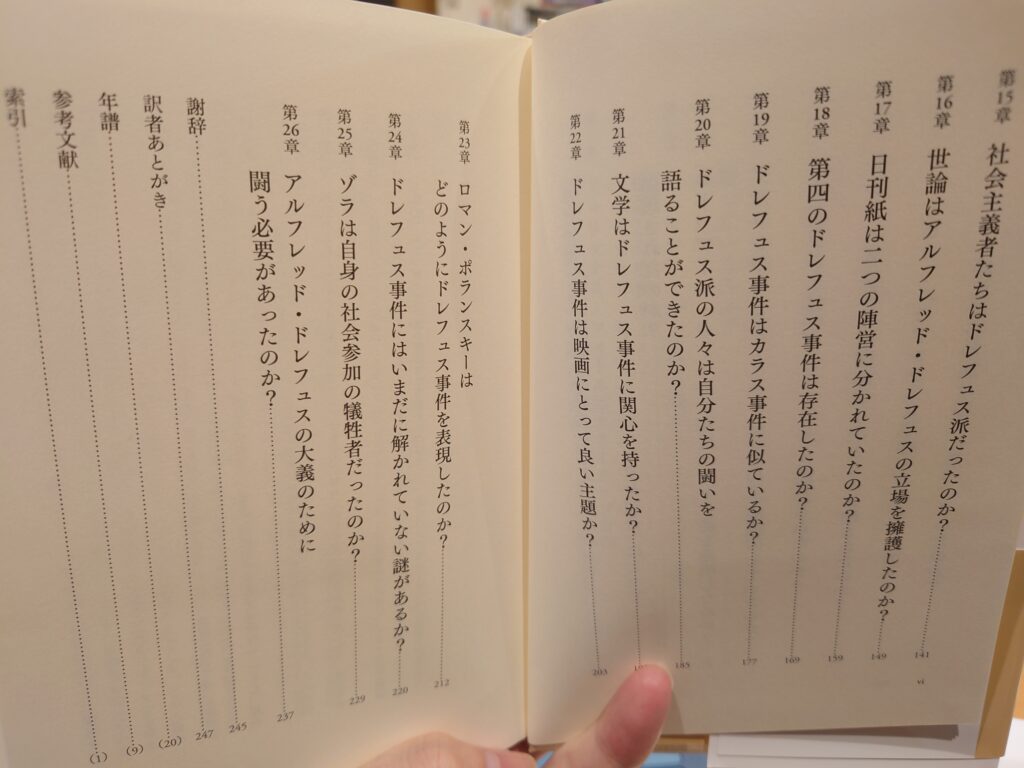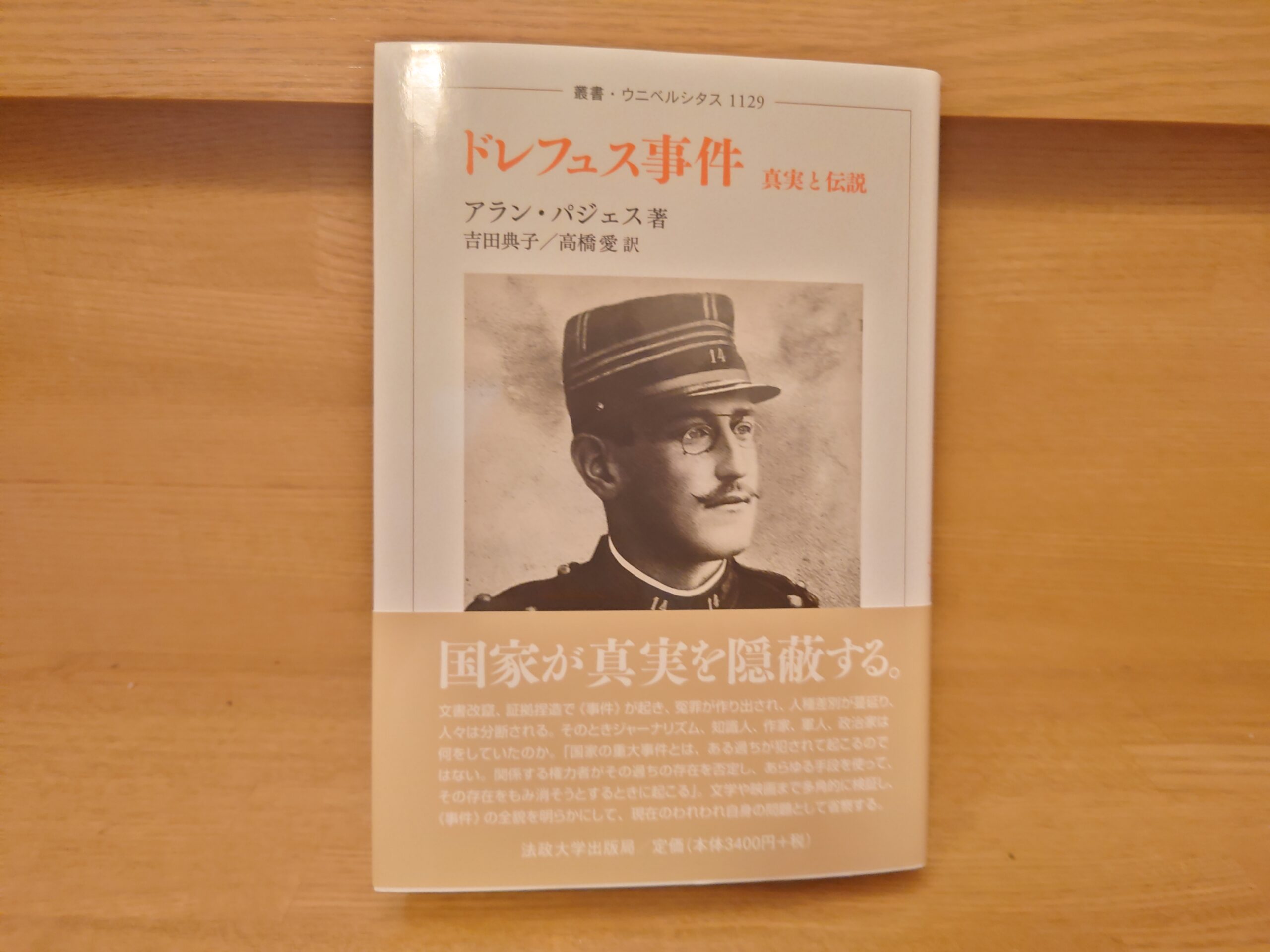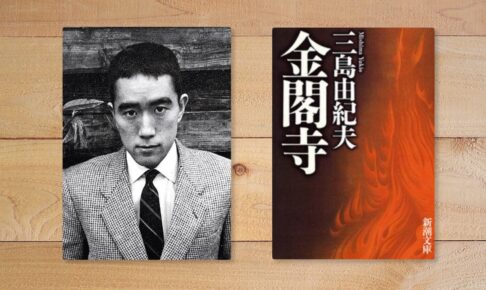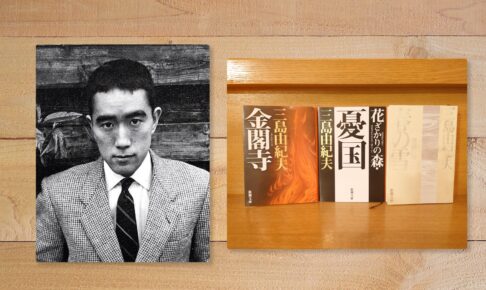Alain Pagès, "The Dreyfus Affair: Truth and Legend" Summary and Comments - Falsification of documents and evidence by the state - How Zola confronted this case.
We are pleased to introduce "The Dreyfus Affair: Truth and Legend" written by Alain Pagès and translated by Noriko Yoshida and Ai Takahashi, published by Hosei University Press in 2021.
Let's take a quick look at the book.
AmazonProducts Page.
By falsifying documents and fabricating evidence, the state conceals the truth and creates false accusations. Whenever there is a controversy that divides public opinion, people think of the Dreyfus Affair. A major national incident does not occur because of a mistake. They happen when the powers concerned deny the existence of the mistake and try to cover it up by any means possible," the author says. The book examines the role played by journalism, intellectuals, writers, military officers, and politicians, as well as issues of racism, literature, and film, from a variety of perspectives, and reveals the full picture of the "incident" that constantly arises in response to current events as a precedent that should still be referred to today.
I picked up this piece, which has been on view since June 2022.Officer and Spy."This was the reason for the film "The
I had always liked Emile Zola and was intrigued by this film about the Dreyfus affair in which he became involved, so I headed to the movie theater.
After watching the film, I was driven to learn more about the case, and I couldn't stand still.
That is where I came across this book, "The Dreyfus Affair: Truth and Legend.


As you will see in this table of contents, this work looks at the Dreyfus Affair from a wide variety of perspectives.
The book also provides a connection between Emile Zola and the Dreyfus case.
And I am happy to note that there is also a reference to the movie "Officer and Spy". This movie was released in France in 2019, so the Japanese translation of "The Dreyfus Affair: Truth and Legend" was added to the book based on the content of that movie.
In the table of contents above, it is chapter 23, "How did Roman Polanski express the Dreyfus Affair? It was very interesting to read this chapter, juxtaposing it with my memories of the movie. This is a must see.
This book looks at the Dreyfus case from a variety of perspectives. There are a number of passages that I would like to present in this article, but I would like to share one of the most memorable passages here.
Chapter 19: Is the Dreyfus Case Similar to the Crow Case?
The Dreyfusians are descendants of Voltaire. Their defense of human rights stems from Enlightenment thought. It is directly inspired by the "Treatise of Toleration," published by Voltaire in 1763, which calls on all people to cease religious strife.
May all men remember that they are brothers! Fear the tyranny that is wielded over your souls! Voltaire exclaims at the end of his Treatise on Toleration. This is in his "Prayer to God. Not the God of Catholics, not the God of Protestants. Not the God of the Jews, not the God of the Muslims. It is to "the God of all men, the God of all the world, the God of all the ages." The law of 1905, the result of a political victory won by the Dreyfusian camp, commands the separation of church and state, and is based on the principle of religious tolerance defended by Voltaire.
The relationship between Voltaire's ideas and the Dreyfusian struggle, however, is not merely an ideological issue. It is also based on the role played by the precedent of the Calais Affair with regard to how the defenders of Captain Dreyfus felt about the injustices perpetrated. The Calais Affair was the Dreyfus Affair that was transferred during the reign of Louis XV. Its development in the second half of the 18th century bears many similarities to the events that would occur a century later.
Hosei University Press, Alain Pagès, translated by Noriko Yoshida and Ai Takahashi, The Dreyfus Affair: Truth and Legend, p177-178
Some line breaks have been made.
Voltaire and the "Crow Affair" discussed here have been discussed by me before.A Theory of Tolerance."I came to know through
I never thought that Voltaire's "Theory of Toleration" and Zola's "I impeach!" I never thought that Voltaire's "Theory of Tolerance" and Zola's "I impeach! This was a surprise to me.
The author summarizes the Raven case in the following manner, including its relation to the Dreyfus case in Zola. The author summarizes the case in the following way, which is a little long but very important.
Let me recount the facts in a few words. It was a night in Toulouse in October 1761. Jean Callas was having dinner with his family at their home in the Rue Filatier. He was an honest Protestant merchant. But the evening had a tragic ending.
One of Karas' sons, Marc-Antoine, was found dead in a store on the ground floor. Accused and imprisoned for murdering his son because he was trying to convert to Catholicism, Jean Carras maintained his innocence. However, on March 9, 1762, the Toulouse High Court of Justice sentenced him to death. On March 10, in one of the town's squares, the unfortunate man was sentenced to be wheeled away, his limbs and chest broken with iron bars, tied to a car suspended in midair, and left there until he expired.
This is what happened at the end of March, as Voltaire came to know it. Voltaire immediately decided to fight for the restoration of the honor of those who had been sentenced. Over the following months, he wrote many He collected the elements of the trial in a pamphlet entitled "The Original Documents Concerning the Death of the Crow Fathers and Son and the Judgment Rendered in Toulouse," which was published in July 1762.
Next, in August, a pamphlet entitled "The Story of Elizabeth Canning and the Crow Fathers and Sons" was published, presenting the story of two judicial cases, with the aim of comparing the functioning of the judicial system in France and England. In addition, a series of other pamphlets were published. The intended action was effective.
In March 1763, the King's Advisory Council granted permission to appeal the judgment rendered by the Superior Court of Toulouse. At the same time, the text of the "Treatise of Toleration" was published, further expanding the arguments defended. Finally, after many judicial twists and turns, Jean Callas' honor was restored in March 1765, following a decision by the King's Council. (Omitted).
There are several reasons to relate the Dreyfus case to the Crow case. If we analyze this very special moment of participation that prompts an intellectual to participate in society, to step out of his familiar comfort zone and throw himself into action, we find the same strong emotions, the same passionate reactions that prompt them to take great risks, despite all the advice to be cautious, both in Zola and in Voltaire. The same strong emotions, the same passionate reactions, are found in both Zola and Voltaire, urging them to take great risks, in spite of all the advice to be cautious.
Zola participated in society because Alfred Dreyfus' story seemed like a tremendous human drama. He reacted as a novelist, fascinated by the scenario presented in his own thoughts. If there had been other judicial cases presenting similarly unjust situations, Voltaire might have been indifferent. However, when he was informed of the details of the martyrdom of the ravens, he was deeply moved. At his home in Fernay, he was visited by Donna, the son of Callas. As he listened to the story being told, he wept in front of Donna. The Crow case captured his heart and he never left. He would live with the case for many years, as his letter indicates. In his own words, it "gripped all the strength of his soul and did not let go. [omitted].
The idea underlying the two social participations is based on the conviction that certain definite objectives can be achieved. The goal is to restore the honor of the ravens and to get Dreyfus out of prison. Public opinion bears witness to the action to be taken. It will be exercised against a judicial system (the High Court of Toulouse or a military tribunal) that does not respect the rights of the accused and is prejudiced by religious prejudice. (omitted).
The struggle of the intellect that has taken place extends beyond religious differences. It transcends partisan agendas. Voltaire is not a Protestant, Zola is not a Jew. Transcending existing religions, they defend human rights and advocate for universal ideas.
Hosei University Press, Alain Pagès, translated by Noriko Yoshida and Ai Takahashi, The Dreyfus Affair: Truth and Legend, p. 178-183
Some line breaks have been made.
History repeats itself...
Voltaire sacrificed his own life to save Callas, a victim of Catholic hatred, and Zola sacrificed his own life to save Dreyfus, a victim of Jewish hatred.
I can't speak any further about the "Crow Affair," but the similarities between the two men were a big shock to me.
I have been working with Emile Zola.The Lugon Makkar Series.I have seen the image of the author of
This group of works was so intense that the image of "Zola = Lugon McCall" became firmly established.
I still have the same image of the "Zola-Dreyfus Affair," but after watching the movie "Officer and Spy" and reading this book, "The Dreyfus Affair: Truth and Legend," I feel that the image of the "Zola-Dreyfus Affair" has grown in my mind as well.
I highly recommend this work to anyone interested in Emile Zola. I think this work reveals a different side of Zola the novelist.
The Dreyfus Affair is not just an event of the past.
This is a problem that directly concerns us living today.
The obi of this book states
Incidents were created by falsifying documents and fabricating evidence, false accusations were made, racism was rampant, and people were divided. What were journalism, intellectuals, writers, soldiers, and politicians doing then? A major national incident is not the result of a mistake being made. They happen when those in power deny the existence of the mistake and try to cover it up by any means possible. This book examines the "incident" from various perspectives, including literature and film, to reveal the whole picture of the "incident" and to reflect on it as our own problem today.
From "The Dreyfus Affair: Truth and Legend," translated by Alain Pagès, Noriko Yoshida, and Ai Takahashi, Hosei University Press.
A major national incident does not occur when a wrong is committed. It happens when the powers concerned deny the existence of that mistake and try to cover it up by any means possible."
These words, written on page 47 of this book, were the most memorable words in the book for me as well.
These are precisely the words that we, living in the modern age, need to think about.
What kind of society is contemporary Japan in which we live? What kind of society do you think we are living in today? This book had a great impact on me as well.
I would highly recommend this work.
This is "Alain Pagès, "The Dreyfus Affair: Truth and Legend," Falsification of Documents and Fabrication of Evidence by the State - This is the book to learn more about the Dreyfus Affair! This is a book to learn more about the Dreyfus Affair!
Click here to read the previous article.
Related Articles







































